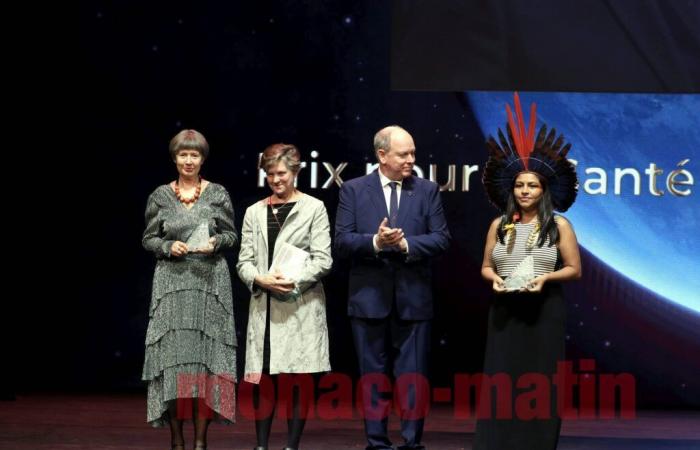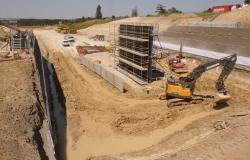
After a 2023 edition which took place in Philadelphia, return to Monaco this Thursday, November 7 for the annual awards ceremony for planetary health of the Prince Albert II of Monaco Foundation. And what better setting than the Salle Garnier to host this 17th edition, ensuring that it respects the commitments of the FPA2 since 2008, to honor personalities and organizations who are remarkably committed to the preservation of the planet.
“We can create a more sustainable world by combining tools and resources, multiplying initiatives, basing our approach on realities and global challenges,” launched the Sovereign as he opened the ceremony from the podium, hammering home the message that he repeats throughout the world that another future is possible if we collectively give ourselves the means. Since 2006, his foundation has supported nearly 800 projects, “concrete commitments, scientifically assured and carried out with determination”recalled Prince Albert II.
“We're going to continue to do this because the threats are high and we need to continue to innovate, to identify the dangers and the opportunities.”
And to add: “We are preparing new generations so that they can defend the objectives of our action.”
In this sense, in addition to the three trophies, the Prince Albert II Foundation distinguished this Thursday evening – for the seventh consecutive year – twenty-four young student researchers from developing countries. All are beneficiaries of scholarships funded by the IPCC and the Cuomo Foundation, and are studying climate change and the means to stem it.
Instituto Juma, defender of Amazonian diversity
In 2020 in Brazil, the leader of an indigenous community, Juma Xipaia, founded this organization which ensures the protection of the environment, the promotion of human rights
of indigenous peoples and the defense of the cultural and territorial integrity of local communities in the Amazon, particularly those in the Xingu region. With the Instituto Juma, Juma Xipaia notably fought against the Belo Monte hydroelectric dam, which had significant environmental and
social in the Amazon.
The organization also draws on its legacy of resistance to promote sustainable development, the autonomy of indigenous populations and equality between men and women.
Finally, the Instituto Juma develops and promotes initiatives aimed at preserving ancestral knowledge. In November 2023, for example, an expedition to Xipaya territory identified and documented medicinal plant species, strengthening intergenerational knowledge exchange.
The actions also support the essential role of indigenous women in the transmission and preservation of ancestral knowledge, the strengthening of their autonomy and their cultural, environmental and social commitment, particularly among younger generations.
Lidia Morawska, a physicist who moves the lines
Professor Emeritus at the Queensland University of Technology in Brisbane, Australia, Professor Lidia Morawska is this year's FPA2 winner in her position as director of the International Laboratory for Air Quality and Health at her university, which collaborates with the World Health Organization.
An active member of several entities, Lidia Morawska conducts fundamental and applied research in the interdisciplinary field of air quality and its impact on human health and the environment, with a particular focus on the science of particulate matter emissions .
A graduate of the Jagiellonian University in Krakow, the Polish-Australian physicist is the author of more than a thousand articles. His scientific contributions and personal dedication have enabled him to translate scientific discoveries and knowledge into concrete policies and practices, with lasting benefits for society and the environment.
The work of Lidia Morawska and her team is considered of global importance. She was included in TIME's 2021 ranking of the 100 most influential people in the world for recognizing the importance of aerosol transmission and gathering the data that could convince the WHO and other organizations, which responded by radically correcting their advice on airborne transmission. This has prevented millions of new infections and saved lives.
NatureMetrics reviews the impact of businesses on nature
Recognized as one of the top 25 UK startups, NatureMetrics is recognized by FPA2 for its position as a global leader in the transmission of nature data and information, deploying cutting-edge technology to generate biodiversity insights at scale using environmental DNA, Earth observation, advanced data science and artificial intelligence.
Today, NatureMetrics has 500 customers in around a hundred countries interested in this Nature Intelligence Platform which transforms the way in which companies report their impact on nature, by providing a scalable solution for monitoring biodiversity and by equipping companies global standards for new commitments in nature reporting.





